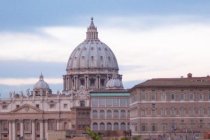Despite the surge of success of Richard Florida’s work The Rise of the Creative Class, there are some reasons to rethink his work. The trouble with Florida’s thesis is not in the accessibly or cogency of his argument–that urban economies are fueled by creative people–but rather in some of his assertions and applications of his creative thesis.
Do Florida’s assertions about the CC being integral to economic growth hold up? Steven Malanga points out that many Creative Class cities have not outpaced non-CC cities in their job growth. Innovation and entrepreneurship are flourishing in non-CC cities such as Detroit and Grand Rapids, cities that Florida writes off.
What about Florida’s urban growth applications? Rise of the Creative Class relies heavily on the gay and bohemian index to identify creative class cities and even recommends that cities attempt to draw gay populations to stimulate dense, hip, culturally diverse, and economically strong urban centers. The plain trouble with this advice is that there are plenty of Creatives that prefer high culture and social homogeneity, people who prefer the space, safety and luxury of the suburbs over the density, crime and “creativity” of the city. Perhaps we should not write off urban growth standbys, such as lower taxes, better education, improved basic services, and efficient governance.
Critiques included, Rise of the Creative Class still offers a wealth of cultural insight into some of America’s most successful cities. Only the passing of time will truly prove or disprove Florida’s economics. Yet we do well to note that as people who exist to renew cities, spiritually, socially, and culturally, missional Christians should exegete their cultures, understand the basic needs of their cities, and maintain the centrality of the whole gospel. With all this talk of cultural capital, we must be careful to not be swept up into planting cool churches and being cool people. Jesus didn’t fit that mold, and the poor of our cities need much more than Kanye’s latest album or a pair of Diesel jeans.
For more critiques:
Glaeser, Review of The Rise of the Creative Class
Malanga, Curse of the Creative Class

 Looks like the Vatican is leading out in ecclesiastical environmentalism. This
Looks like the Vatican is leading out in ecclesiastical environmentalism. This